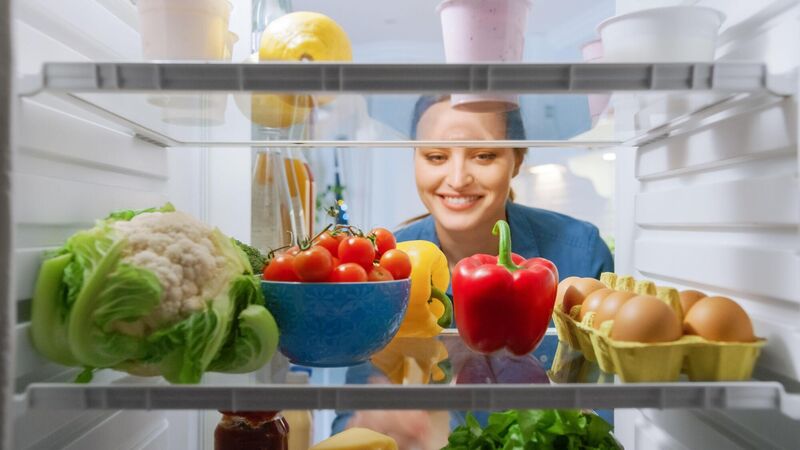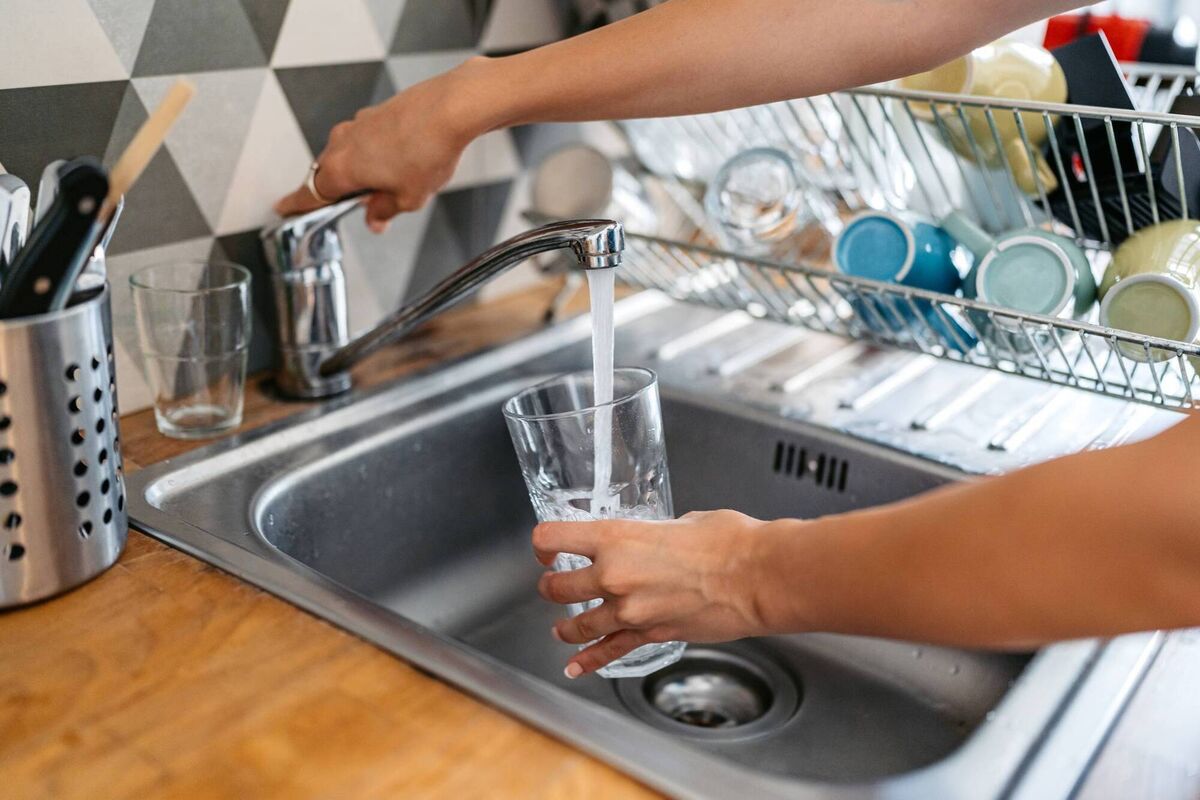WoW! Reset: 31 ways to improve your diet... without going on a diet

Pick a vegetable or fruit that you haven’t used before and try it out, advise Kate Ryan
So that was Christmas, and now we are looking at the new year and new resolutions... only to have given up and thrown in the towel by the middle of January.
Studies have shown that just 9% of resolutions made are completed, while 23% ditch their good intentions by the end of the first week, with a whopping 43% of us quitting our resolutions entirely by the end of January.
It’s not a good look, but many resolutions are simply just too big to cope with as we trudge through a grey, dreary January skint, cold and missing the joys of Christmas past!
Well, there is another way!
Getting back into good habits works best when tackled slowly and incrementally. Before you know it, the task is completed without noticing.
By making one simple change every day for the rest of January, by the end, when you put it all together, you will be eating better, moving a little more and be better nourished.
Drink plenty of water
If you’ve celebrated the new year rather exuberantly, you’ll need to do this anyway! Eight glasses a day is recommended, and if your tap water is good to drink, it’s free too!
Still got some of those holiday leftovers lurking around?
Make a plan to use it up! Learn to love your leftovers and you will reduce food waste and your shopping bill, plus it’ll help spark a little much-needed creativity in the kitchen to enliven your cooking repertoire.
Reduce sugar intake
Sugar is addictive, so start cutting it down gradually. Maybe reduce or eliminate sugar in your tea, cut out fizzy drinks, and reduce treats and processed foods which hide lots of sugar. But not all sugar is bad for us. Most foods contain sugar in some form – maybe that’s carbohydrates like potatoes and rice, but it’s also in fruits and root vegetables, salad greens and broccoli.
When you eat a food whole, instead of pureeing it into smoothies, you get the full benefit of the sugar but bound up with fibre and other good things, which means the sugars are released slowly over time and not all at once.
For one day, make a note of how much caffeine you take and commit to reducing it
Herbal teas and hot water are a good way to start. Remember, drinks like kombucha and cola have caffeine in them, and green tea has as much caffeine in as regular black tea. In moderation, caffeine can be good for us, but overdo it and you might be stressing out your adrenal system or finding it hard to sleep.
Pick a vegetable or fruit that you haven’t used before and try it out
Do this every week and add it to your diet. Increasing the amount and variety of natural produce is only ever a good thing. I like focusing on one vegetable and fruit and really getting to grips with its versatility and finding multiple ways to prep or cook it.
Get out for a walk at lunchtime
Even for five minutes. Not only will it help you to digest your lunch, but it will help mobility and boost your Vitamin D levels which are low at this time of year.
Try to eat at the table at least three times a week
Avoid couch dining and be mindful about what you’re eating.
The table is a place of conviviality where you can have the chat and enjoy the company of others. Try and keep phones and tablets off the tables.
Play some music, set the table nicely, and maybe make the lighting a little more intimate.
Start cutting down the amount of alcohol you drink
Any reduction is good for you, but the good news is that a little is also good for you too. Drinking a little less means you can spend a little more on a better-quality wine, for example an organic/biodynamic wine made with minimal intervention and no harmful chemicals. They are different from your standard wine but are exciting wines to explore.
Make a meal plan for the week ahead
Write a shopping list and purchase everything you need in advance so you can stick to the plan. I can’t emphasise how revolutionary this simple bit of planning is to how you eat during the week, and it costs absolutely nothing!

Make sure there is always something green on your plate
A bit of broccoli or a little side salad with your pasta dish will help you to increase the amount of fibre in your diet, which is essential for all sorts of things, including boosting our microbiome and general digestive health, managing cholesterol, and getting in lots of additional vitamins and nutrients.
Introduce a Meat Free Monday into your week
Vegetarian and vegan food is so inventive, tasty and fulfilling that even the most die-hard of meat-eaters will enjoy it! Avoid fast food versions of veggie-forward meals – just because it’s plant-based doesn’t mean that ready meal is going to be better for you. If you can cook from scratch, do, and if it’s something that takes a bit of time, batch it, portion it, label it, and stick it in the freezer. Future you will thank you for it!
Try swapping sugary cereals for low-sugar, high-protein, slow-releasing breakfasts
Think porridge, bananas, yoghurt, avocado, eggs and smoked fish instead. Mushrooms are packed with vitamin D which we need a boost of. Spinach and kale are great additions to a fry, and black pudding is low fat and high in iron. If time is short in the morning, overnight oats is a winner.
Begin a short food diary and note how you feel after each meal
Uncomfortable bloated feelings after pasta, bread or dairy could mean a gluten, wheat or dairy intolerance. Try cutting it out for a few weeks and see if there is a difference.
Real sourdough will always be easier to digest, or maybe swap cow’s milk for dairy made from sheep’s, goat or buffalo milk which is easier to digest.
Do a fridge/freezer/press audit
Chuck out any food past its use-by date (not sell-by date); get rid of anything high in sugar, highly processed or with little nutritional value. It won’t be doing you any good, so bin it.
Reduce your intake of highly processed foods
This includes frozen or chilled ready meals; takeaways, prepared fruit and veg, pre-packed sandwiches, etc. If a product has more than five ingredients, it is deemed to be an ultra-processed food.
Stock up on pulses, whole grains, nuts, seeds and unrefined wholefoods
They are versatile and packed full of protein and nutrients. If you need extra inspiration, follow Cork-based chef and self-proclaimed #BeanQueen, Ali Honour on Instagram (@honouryourfood), who has incredible ideas for making those tins of beans in your press suddenly super-sexy!
Teach yourself a new kitchen skill
Books, TV, online, or a local cookery course can get you on your way to eating better at home. Knowing how to cook is a fabulous life skill to have.
Batch-make delicious and nutritious soups to freeze
Soups provide an instant boost of nutrition, are cheap to make, and a great way to use up leftovers or bits of random veg. Batch cooking in general gets the thumbs up from me.
Experiment with spices and herbs
They add punches of flavour which will reduce the need to use excess quantities of fats, sugars and salts.
Introduce fresh fish into your diet weekly
Fish is a wonderful source of wild protein and packed with essential nutrients. If fresh fish is just too much, remember that tinned fish are hot right now!
From tuna and sardines to cockles, mussels and even pickled oysters, tinned fish are amazing larder ingredients.
Pick brands that source fish sustainably.
Walking and running are free exercise
You don’t need a gym membership to walk down the road, and if you have a dog, you don’t have a choice – Fido will always demand a walkies!
Once a month, schedule in some time for self-care
It might be a massage, or a hair appointment, meditation or socialising. Whatever it is, make this the time to put you first.
Cut down on white starches and swap for healthier alternatives
Sweet potatoes instead of white potatoes, brown rice and wholemeal pasta, etc.
Steadily increase the quantity of veggies in your diet
For your evening meal, eventually the veggies on the plate should be more than the protein and carb combined.
Swap fruit juices and smoothies for the whole fruit
This will retain the essential fibre that is important for our overall health. An orange is better than orange juice – always!
Read up on how to identify hidden sugars in food
Take your time to read labels on food products. Teach yourself to understand what is in our food.
Swap chicken for turkey!
Turkey has far less calories in it than chicken but is cheaper too. I use turkey a lot in curry in place of chicken where the taste of the meat is less important than the texture or the flavour of the spices.
Choose better quality meat
Cheap meat is cheap for a reason – it’s raised intensively, often imported, and most associated with climate change. Instead, swap heavily industrialised produced meat for low-intensity, free-range and if possible organic meat and go for quality over quantity. It may mean a reduction in how much you eat, but meat – as with any food produced in a way that makes it more nutritionally dense – will mean you’ll need to eat less of it to feel satisfied.
Where possible, swap to organic foods and source locally
Reducing the amount of chemicals from the food chain can only be a good thing, and buying local helps support hard-working, small-scale farming in your area that directly contributes to the local economy.
Plan a small growing patch in whatever space you have
Indoors or outdoors. All you need is a windowsill, and you can grow herbs, chilies and tomatoes. If you have more space, grow more!
See food as a way to nourish your body
Food should not be about extremes of restriction or over-indulgence, but about being mindful of what and how we feed ourselves.







 App?
App?


